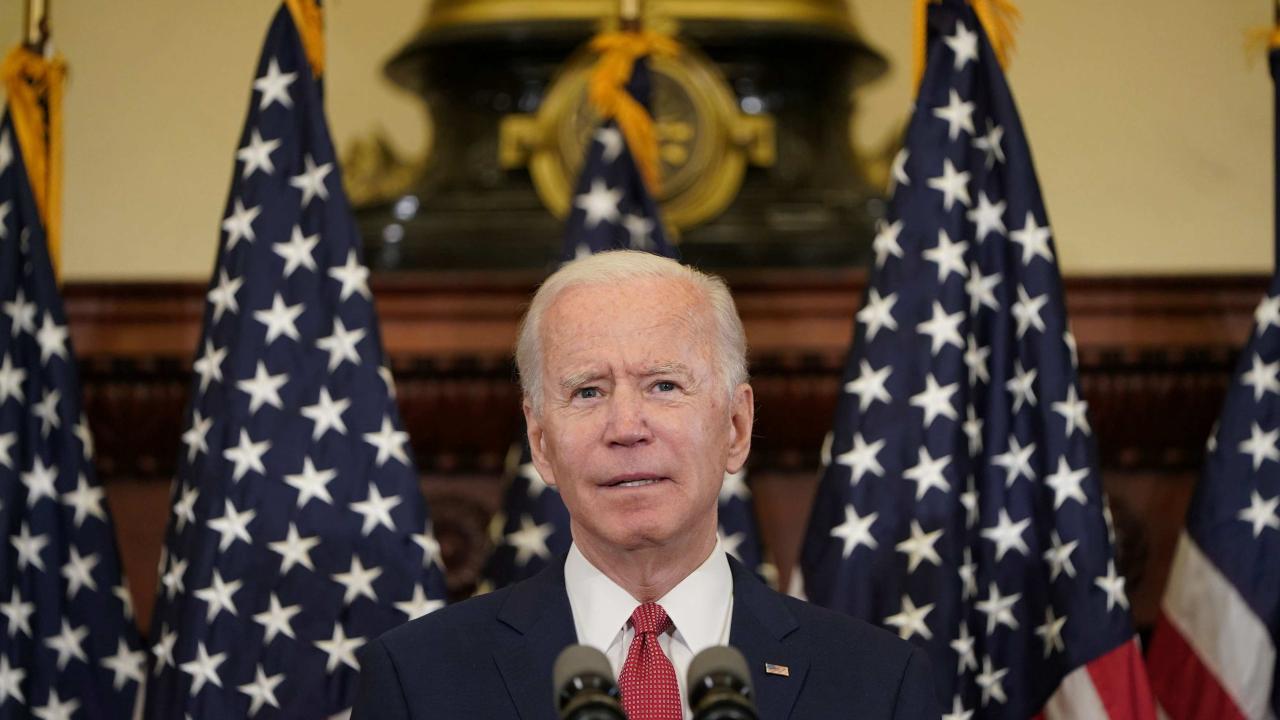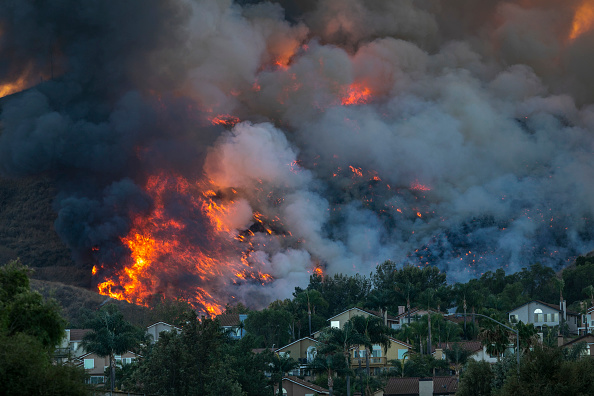
Editor's note: Stephen Ndegwa is a Nairobi-based communication expert, lecturer-scholar at the United States International University-Africa, author and international affairs columnist. The article reflects the author's opinions, and not necessarily the views of CGTN.
U.S. President Joe Biden is emerging as a man of his word. As one of his campaign pledges, he had promised that one of his top priorities after being sworn into office would be to re-enter the Paris Agreement after former President Donald Trump signed off in June 2017. He did not disappoint.
On January 20, Biden gave a 30-day notice of America's intention to rejoin the United Nations Framework Convention on Climate Change that aims at curbing both greenhouse gas emissions and a rise in global temperatures to a maximum of 1.5 degrees Celsius above pre-industrial levels.
Biden had also promised to block the controversial Keystone XL pipeline, a project that Trump had given the go-ahead to contrary to warnings by environmentalists. The president's executive action also entails restoring the country's Environment Protection Agency and pausing new oil and natural gas leases for drilling on public lands or in offshore waters.
Biden's concern and passion for the environment is not in doubt. Indeed, he has stated that climate change is one of the existential threats of our time and a national emergency currently second only to the COVID-19 pandemic. Were it not for the latter, the resources now being invested in managing COVID-19 would have been put into climate change mitigation measures.
The choice of John Kerry as the U.S. Special Presidential Envoy for Climate shows that Biden intends to spread his climate action creed worldwide. Of course, Biden's confidence is pegged on the fact that Kerry has the requisite global clout, having served as the 68th Secretary of State from 2013 to 2017. His terms of reference are similar, only that this time his role is agenda specific.
Prior to the signing of several climate action orders on January 27, Biden talked about climate justice that would benefit American jobs, innovation and products. In addition, his plans would ensure better health and security for American communities.
But achieving Biden's agenda, even as it sounds like just what the doctor ordered, will not be a walk in the park. One of the biggest hurdles will be in the Senate, where both Democrats and Republicans carry almost equal weight. Going by the status quo, Biden's enthusiasm and political will may not be shared across the political spectrum. If the recent impasse on his $1.9 trillion COVID-19 rescue plan and the opposition by a majority of GOP senators to impeaching Trump are signs of the times, Biden's administration faces an uphill battle in garnering the necessary senatorial buy-in for his $2 trillion climate proposals.

Flames rise near homes during the Blue Ridge Fire in Chino Hills, California, U.S., October 27, 2020. /Getty
Flames rise near homes during the Blue Ridge Fire in Chino Hills, California, U.S., October 27, 2020. /Getty
Secondly, Biden will have to respect other countries' points of view on climate action since no country is now willing to indulge America's high-handedness. Not that other countries with high levels of pollution take the issue lightly. It is simply that they might have different development priorities and divergent views on climate change. For many developing countries, for instance, use of carbon fuels may be the only way to survive due to minimal capacity to absorb sophisticated and expensive green technologies.
Thirdly, analysts are pondering whether the U.S. has bitten off more than it can chew in taking on the onerous role of leading global climate action. At a time when stupendous amounts of money are being used to stimulate not just the U.S. but the global economy as a result of the pandemic, there might not be much left commensurate with the magnitude of the climate action that needs to be taken in the short to medium term.
Also, Biden's action will not be without opposition by various corporate and labor union interests. Stopping projects with a high carbon footprint will definitely be a double-edged sword. Ironically, Trump's withdrawal from climate action was based on his argument that it was "job-killing." On June 3, 2014, he tweeted that "Obama's war on coal is killing American jobs, making us more energy dependent on our enemies and creating a great business disadvantage."
Well, you cannot have your cake and eat it. A line will have to be drawn on whether retaining optimum levels of employment can come at a high cost to the planet. It could also lead to a case where a huge percentage of profits made from ozone layer depleting activities will be ploughed back into climate change mitigation measures, including the rehabilitation of environmentally degraded areas.
Well, Biden has re-ignited the global conversation on climate change. Now the hard work begins of looking at what is feasible in reality, and within realistic timeframes. There will be need for flexibility and compromises by all players so that climate action does not serve to widen the gap between rich and poor countries after the phasing out or banning of pro-poor production technologies.
(If you want to contribute and have specific expertise, please contact us at opinions@cgtn.com.)

